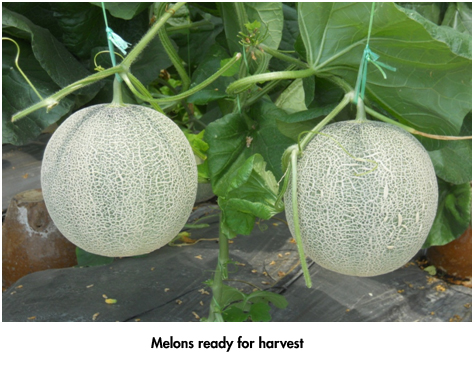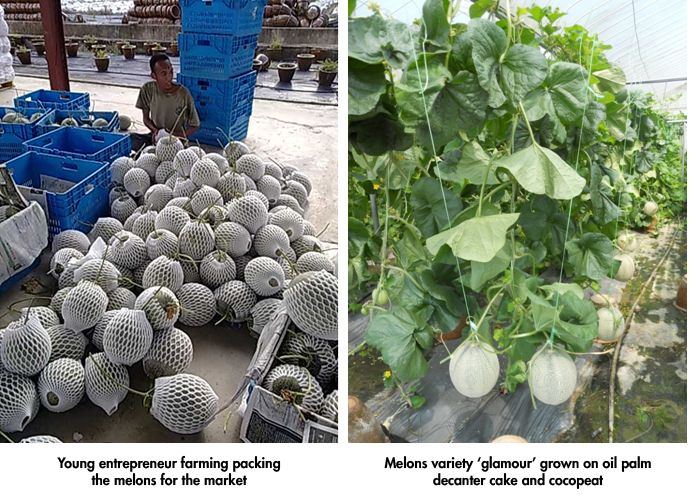With a planted oil palm area of 4.9 million hectares, Malaysia is second to Indonesia as the world’s biggest palm oil producers. About 420 oil palm mills in Malaysia grapple with the amount of waste generated in the palm oil extraction process.
On the average, a palm oil mill requires approximately 5.5 tons of fresh fruit bunches to extract 1.0 ton of crude palm oil. The waste products generated are empty fruit bunches (28%), fibres (24%), shell (6%), decanter cake (3%), and palm oil mill effluent.
Oil palm decanter cake (OPDC) is a solid waste produced after the clarification process to retrieve oil from sludge. OPDC contains nutrients including Nitrogen 2.42%, Phosphates 0.51%, Potash 1.29% , Calcium 1.6% and Magnesium 0.5%. It is commonly used as a soil ameliorant and organic fertilizer.
In a move to utilize OPDC from palm oil factories, the Malaysian Department of Agriculture Horticultural Division initiated a project in its Food Production Park Program in Besut, Terengganu, to produce melons by hydroponics/soilless culture. It uses the fertigation technique with a mixture of 60% oil palm decanter cake (OPDC) and 40% coco-peat as planting media.
The melons are produced in plastic (rain shelter) houses, where planting beds of the OPDC and coco-peat mixture are covered with ‘silvershine’ plastic sheet to retain moisture and control weeds. The beds measuring 1 meter in width, 0.3 m high and 32.2 meters long are also treated with microorganisms to promote composting. Planting holds are punched into the plastic holes for the establishment of 3 week old ‘glamour’ variety melon nursery raised seedlings. The plants on the beds are fertigated two to four times a day, depending on the weather and condition of the plants.
Appropriate combination and timing of fertilizer application through drippers and foliar sprays coupled with recommended pruning methods can produce 2 melons per tree with an average weight of 2.5 – 3.0 per fruit.
The project involves 11 participants who are young entrepreneurs in 64 plastic houses covering an area of 6.4 ha. The participants attend capacity strengthening programs of the Department of Agriculture Malaysia on production technology of melons including fertilizer requirements, pests and disease management, cultural methods and post-harvest management. Melons are preferred due to the consistent demand and attractive farm price.
Melons are sold at an average of USD 1.00 per kg. The cost of production averages around USD 0.50. Participants have reported an income of USD 1,000 to 1,200 per month, indicating that proper utilization of waste materials from oil palm mills can provide extra income for farmers. The Malaysian Department of Agriculture intends to encourage more farmers to participate in this program.
This article contains information from the Malaysian Palm Oil Board and Malaysian Department of Horticulture.


